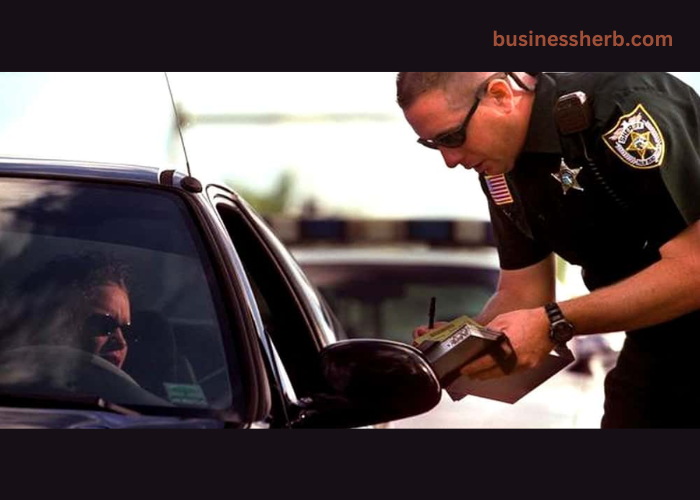Traffic lawyers specialize in the legal issues surrounding road use and vehicular laws. They represent individuals facing traffic-related charges and help navigate the intricacies of traffic legislation. These professionals are well-versed in matters ranging from minor infractions, like speeding tickets, to more serious allegations such as reckless driving or DUI charges. Their expertise extends to understanding the technicalities of road laws, the functionality of traffic courts, and the potential consequences for their clients.
The role of a traffic lawyer is crucial in helping clients to mitigate the outcomes of traffic violations with a traffic violations lawyer. They offer legal advice tailored to the specific circumstances of each case and may assist in reducing fines, preventing points on a driver’s license, or staving off more severe penalties. Traffic lawyers are also instrumental in protecting clients’ rights during traffic stops and in court proceedings, ensuring due process is followed and that any evidence against their clients is admissible and collected lawfully.
In addition to providing representation in court, traffic lawyers often engage in negotiations with prosecutors and can even challenge the traffic enforcement methods or the accuracy of the evidence presented, such as radar gun readings or procedural issues with sobriety tests. They serve as essential allies for those who seek to have their traffic charges dismissed or downgraded, thereby minimizing the impact on their driving record and personal life.
Understanding Traffic Law
When navigating the complexities of traffic law, it is crucial to grasp the variances in regulations across states, understand the types of traffic violations, and recognize the critical role that traffic lawyers play in this legal area.
State-Specific Traffic Regulations
Each state possesses its own set of traffic laws that can influence the defense strategies in cases of traffic violations. For example, in California (CA) and New York (NY), red-light camera tickets are common, while in Colorado (CO) and Michigan (MI), regulations might be more stringent on issues like snow-related infractions. In states such as Florida (FL) and Georgia (GA), specific statutes exist relating to racing on highways, while Oregon (OR) focuses intently on pedestrian and bicyclist safety.
Types of Traffic Violations
Traffic violations are categorized in various ways, often determined by the severity of the offense. Moving violations include:
- Speeding: Exceeding posted speed limits
- Reckless driving: Operating a vehicle in a manner that disregards safety
- Running a stop sign: Failing to stop where required
Non-moving violations might include parking offenses or faulty vehicle equipment. The consequences of such violations can vary greatly from points on a driver’s license to substantial fines or even criminal charges.
The Role of Traffic Lawyers
Traffic lawyers or traffic ticket lawyers specialize in defending individuals against charges of traffic violations. In states like Massachusetts (MA) and Pennsylvania (PA), they may work to have fines reduced or points removed from licenses. In Illinois (IL), for example, defense attorneys may focus on preventing the escalation of traffic tickets to a criminal defense case. Traffic lawyers build trust within the legal community by consistently delivering favorable results for their clients, often through an in-depth understanding of state-specific traffic laws.
Hiring a Traffic Lawyer
When facing traffic violations, selecting the right legal representation can impact the outcome of your case. A traffic lawyer should be well-versed in related practice areas, and understanding their fees and background is pivotal.
What to Look for in a Traffic Lawyer
When searching for a traffic lawyer, consider their practice areas and work experience. A seasoned lawyer will have extensive knowledge of local traffic laws and experience with traffic court proceedings. Seeking a traffic lawyer with experience specifically in cities such as Charlotte, Cleveland, Columbus, Jacksonville, Los Angeles, New York, Raleigh, or Saint Louis where the regulation might vary significantly is beneficial.
Potential clients should review the lawyer’s years licensed to practice, as well as their record in handling similar cases. This can generally be found on lawyer directories like Avvo or Super Lawyers. A thorough background review, including education, awards, and client reviews, can provide insight into the lawyer’s capabilities and reputation.
Understanding Legal Fees and Consultation
Initial consultations with a traffic lawyer may be free or fee-based. During the consultation, it’s important to discuss the fee structure:
- Flat rate: Single fee for all services.
- Hourly rate: Fee based on the time spent on the case.
Some lawyers may offer flexible payment options or reduced fees for commercial drivers or those with financial constraints. Make sure to get a clear understanding of what services are covered by the fees.
Finding the Right Lawyer for Your Case
Choosing a lawyer who is the right fit for your case requires careful consideration. Below is a checklist for evaluating a traffic lawyer:
- Background: Verify credentials and experience.
- Specialization: Assess areas of specialization relevant to your situation.
- Reputation: Read reviews and ask for client testimonials.
Find a lawyer in the relevant city or state, such as North Carolina, with a track record of dealing effectively with traffic violation cases, including criminal cases if applicable. Use online resources and local law firm listings to create a list of potential candidates before making a decision.

